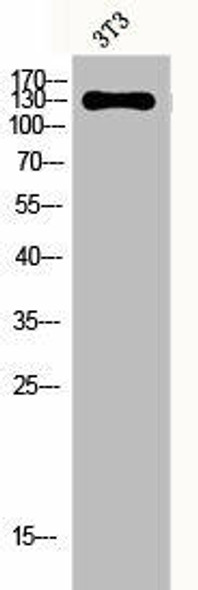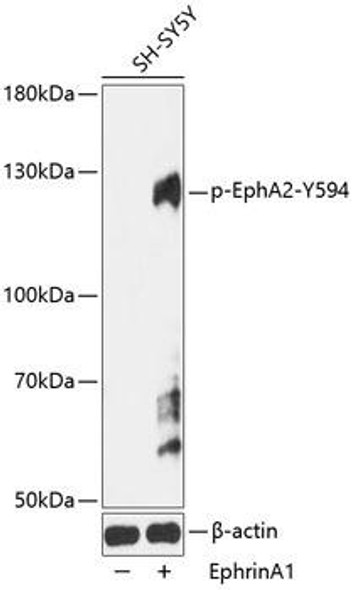Description
EPHA2 PAT66G9AT Monoclonal Antibody [PAT66G9AT] (CPAB0665)
The EphA2 Polyclonal Antibody (CPAB0665) is a valuable tool for researchers studying EphA2, a receptor tyrosine kinase involved in various cellular processes such as cell adhesion, migration, and proliferation. This antibody, produced in rabbits, shows high specificity and sensitivity for detecting EphA2 in human samples, making it ideal for use in Western blot and immunohistochemistry applications.EphA2 is known to play a critical role in cancer progression and metastasis, making it a promising target for cancer research.
By targeting EphA2, researchers can gain valuable insights into the mechanisms underlying tumorigenesis and potentially develop new therapeutic strategies for combating cancer.Overall, the EphA2 Polyclonal Antibody is a reliable tool for studying EphA2 in the context of cancer biology and other cellular processes, providing valuable information that can ultimately contribute to the development of novel cancer therapies.
| Product Name: | EPHA2 PAT66G9AT Antibody |
| Product Sku: | CPAB0665 |
| Size: | 5μg |
| Host Species: | Mouse |
| Immunogen: | Anti-human EPHA2 mAb, is derived from hybridization of mouse F myeloma cells with spleen cells from BALB/c mice immunized with a recombinant human EPHA2 protein 27-537 amino acids purified from Ecoli. |
| Clone: | PAT66G9AT. |
| Reactivity: | Other bodies |
| Applications: | ELISA, Flow Cytometry |
| Purification Method: | EPHA2 antibody was purified from mouse ascitic fluids by protein-A affinity chromatography. |
| Isotype: | IgG2b |
| Background: | EPH Receptor A2 (EPHA2) is a member of the ephrin receptor subfamily of the protein-tyrosine kinase family. EPHA2 is a protein which binds ephrin-A ligands. EPH and EPH-related receptors are associated with mediating developmental events, particularly in the nervous system. Receptors in the EPH subfamily normally have a single kinase domain and an extracellular region containing a Cys-rich domain and 2 fibronectin type III repeats. The ephrin receptors are divided into two groups based on the similarity of their extracellular domain sequences and their affinities for binding ephrin-A and ephrin-B ligands. EPHA2 gene mutations are the cause of certain genetically-related cataract disorders. |
| Synonyms: | EPHA2, EPH Receptor A2, ECK, Tyrosine-Protein Kinase Receptor ECK, EC 2.7.10.1, CTRCT6, ARCC2, CTPP1, CTPA, Epithelial Cell Receptor Protein Tyrosine Kinase, Ephrin Type-A Receptor 2, Soluble EPHA2 Variant 1, Epithelial Cell Kinase, EC 2.7.10, EphA2. |
| Storage Buffer: | For periods up to 1 month store at 4°C, for longer periods of time, store at -20°C. Prevent freeze thaw cycles. |












